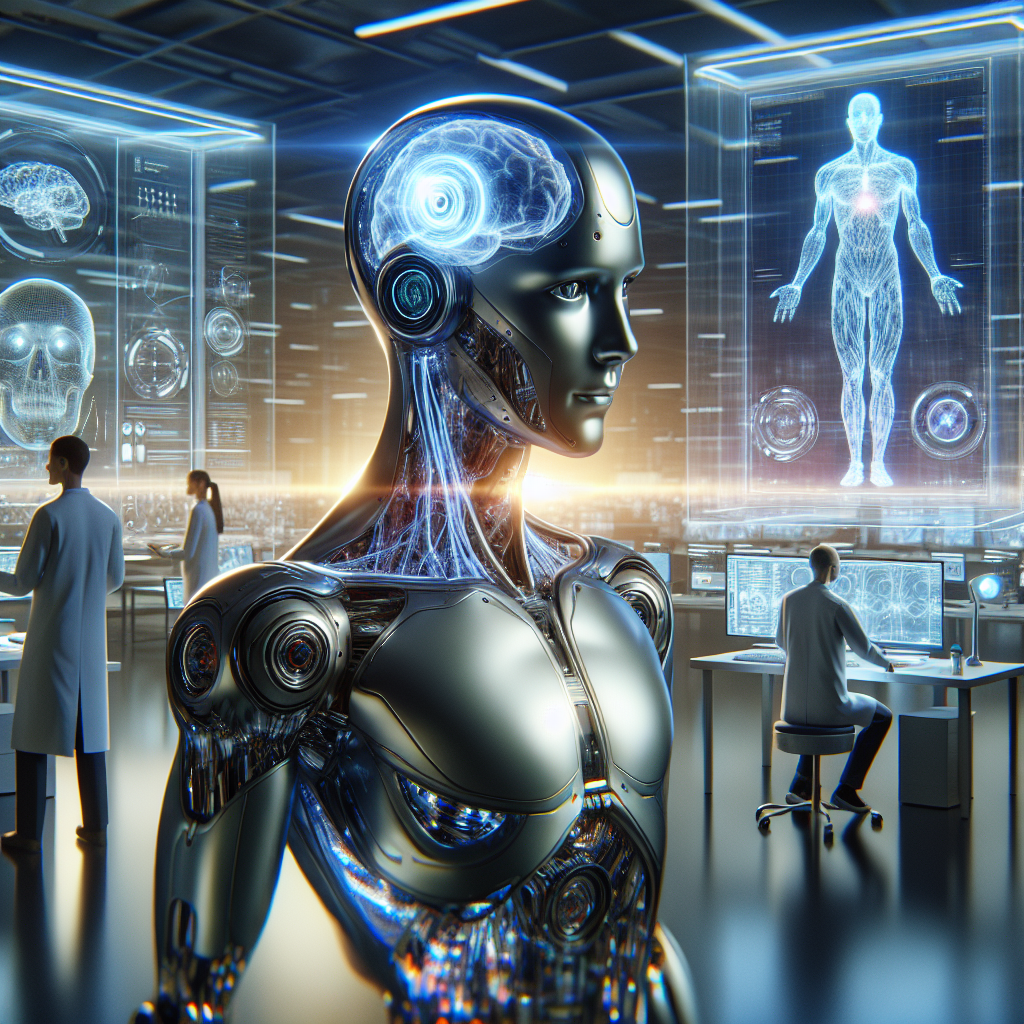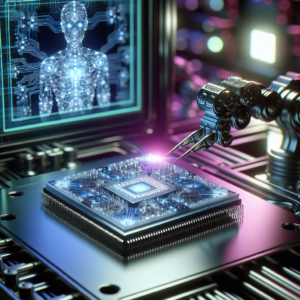China’s Manus AI ‘Agent’: A Revolutionary Step Towards Artificial General Intelligence
Artificial intelligence (AI) has seen extraordinary advancements in recent years, and one of the most exciting developments is the emergence of China’s Manus AI ‘agent’. This AI system is a potential precursor to what many experts refer to as artificial general intelligence (AGI)—an AI that possesses the ability to understand, learn, and apply knowledge across a diverse range of tasks, much like a human being. As the landscape of AI technology continues to evolve, Manus AI presents a fascinating glimpse into the future of intelligent systems.
What is Manus AI?
Manus AI is the brainchild of Chinese researchers who have designed this AI agent to simulate human-like cognitive functions. Unlike traditional AI systems that are typically designed for specific tasks, Manus AI aims to operate in a more generalized manner. This means that it can engage in conversations, understand context, and even perform tasks that it hasn’t been explicitly programmed to do.
Key Features of Manus AI
Manus AI boasts several remarkable features that position it as a revolutionary player in the field of artificial intelligence:
1. Natural Language Processing
Manus AI is equipped with advanced natural language processing (NLP) capabilities, allowing it to understand and generate human language with a high degree of accuracy. This feature enables the AI to engage in meaningful conversations and respond appropriately to queries, making it a valuable tool for customer service, education, and more.
2. Learning and Adaptation
One of the standout characteristics of Manus AI is its ability to learn and adapt over time. Through machine learning algorithms, the AI agent can analyze data patterns and evolve its responses based on previous interactions, much like how humans learn from experience.
3. Multi-tasking Abilities
Manus AI can handle multiple tasks simultaneously, making it a versatile assistant capable of managing various responsibilities at once. This trait is particularly beneficial in environments that require real-time decision-making and rapid adaptation to changing scenarios.
The Implications of Manus AI for AGI
The introduction of Manus AI raises several intriguing questions about the future of artificial intelligence. As we inch closer to achieving AGI, understanding the implications of such technology becomes essential. Here are some key considerations:
1. Human-like Interaction
The ability of Manus AI to engage in human-like conversations opens up new possibilities for human-computer interaction. This technology could redefine how we communicate with machines, making it feel more natural and intuitive. Whether it’s in customer service, therapy, or personal assistance, the potential applications are boundless.
2. Ethical Considerations
With great power comes great responsibility. The rise of Manus AI forces us to confront ethical questions regarding the development and deployment of AGI. What safeguards should be put in place to ensure that this technology is used responsibly? How do we prevent potential misuse or biases inherent in AI systems? Addressing these concerns is critical as we progress towards more advanced AI.
3. Economic Impact
As AI systems like Manus become more prevalent in the workforce, there could be significant economic implications. While these technologies can enhance productivity and efficiency, they may also disrupt traditional job markets. Preparing for this shift will require a reevaluation of labor policies, education, and training programs to ensure that workers are equipped to thrive in an AI-driven economy.
Manus AI vs. Traditional AI
To better understand the significance of Manus AI, it’s essential to compare it with traditional AI systems. While conventional AI is typically designed for narrow applications—such as image recognition or data analysis—Manus AI aims for a broader scope of functionality.
1. Narrow AI vs. General AI
Traditional AI is often referred to as narrow AI because it excels in specific tasks but lacks the ability to generalize its knowledge. Manus AI, on the other hand, strives for general intelligence, allowing it to tackle a wider array of challenges and engage in complex problem-solving.
2. Programming vs. Learning
Conventional AI systems rely heavily on pre-programmed instructions to operate. In contrast, Manus AI utilizes machine learning to develop its capabilities over time. This means that it can continuously improve and adapt, making it more resilient in unpredictable environments.
Challenges Ahead for Manus AI
Despite its promising capabilities, Manus AI also faces several challenges that could hinder its development and adoption.
1. Technical Hurdles
Achieving true AGI is a monumental task that requires overcoming significant technical limitations. The complexity of human cognition and the nuances of language still pose challenges for AI researchers. Manus AI must navigate these hurdles to realize its full potential.
2. Societal Acceptance
The acceptance of AI technology by society is crucial for its success. Many individuals harbor concerns about job displacement, privacy, and the implications of machines making decisions. Building trust and fostering understanding between humans and AI systems will be essential for the widespread adoption of Manus AI.
Conclusion: The Future of Manus AI and AGI
As we continue to explore the capabilities of Manus AI, it is clear that we are on the cusp of a new era in artificial intelligence. This AI agent not only showcases the potential for more advanced cognitive functions but also raises important questions about the future of technology in our lives.
The journey toward artificial general intelligence is fraught with challenges and uncertainties. However, the advancements demonstrated by Manus AI provide a glimpse into a future where machines can interact with us in ways that feel more human. With careful consideration and ethical frameworks in place, we can harness the power of Manus AI to create a better world, one where technology complements our lives rather than complicates them.
As researchers continue to refine Manus AI and other AGI initiatives, it will be essential to remain vigilant about the implications of such breakthroughs. The evolution of AI is just beginning, and the possibilities are limited only by our imagination and ethical considerations.
In a rapidly changing technological landscape, the introduction of Manus AI is an exciting development that could shape the future of human-machine interaction, redefine industries, and challenge our perceptions of intelligence itself.



